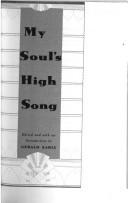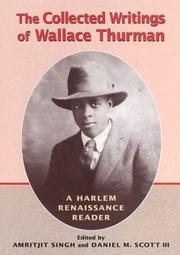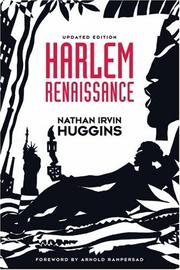| Listing 1 - 10 of 50 | << page >> |
Sort by
|

ISBN: 0385412959 Year: 1991 Publisher: New York (N.Y.): Doubleday
Abstract | Keywords | Export | Availability | Bookmark
 Loading...
Loading...Choose an application
- Reference Manager
- EndNote
- RefWorks (Direct export to RefWorks)
Book
ISBN: 9781481315852 1481315854 Year: 2021 Publisher: Waco Baylor University Press
Abstract | Keywords | Export | Availability | Bookmark
 Loading...
Loading...Choose an application
- Reference Manager
- EndNote
- RefWorks (Direct export to RefWorks)
"Dietrich Bonhoeffer publicly confronted Nazism and anti-Semitic racism in Hitler's Germany. The Reich's political ideology, when mixed with theology of the German Christian movement, turned Jesus into a divine representation of the ideal, racially pure Aryan and allowed race-hate to become part of Germany's religious life. Bonhoeffer provided a Christian response to Nazi atrocities. In this book author Reggie L. Williams follows Dietrich Bonhoeffer as he encounters Harlem's black Jesus. The Christology Bonhoeffer learned in Harlem's churches featured a black Christ who suffered with African Americans in their struggle against systemic injustice and racial violence--and then resisted. In the pews of the Abyssinian Baptist Church, under the leadership of Adam Clayton Powell Sr., Bonhoeffer was captivated by Christianity in the Harlem Renaissance. This Christianity included a Jesus who stands with the oppressed, against oppressors, and a theology that challenges the way God is often used to underwrite harmful unions of race and religion. Now featuring a foreword from world-renowned Bonhoeffer scholar Ferdinand Schlingensiepen as well as multiple updates and additions, Bonhoeffer's Black Jesus argues that Dietrich Bonhoeffer's immersion within the black American narrative was a turning point for him, causing him to see anew the meaning of his claim that obedience to Jesus requires concrete historical action. This ethic of resistance not only indicted the church of the German Volk, but also continues to shape the nature of Christian discipleship today--
Black theology --- Harlem Renaissance --- Influence --- Bonhoeffer, Dietrich,

ISBN: 9789004483750 9789051836929 Year: 1994 Publisher: Leiden;Boston BRILL
Abstract | Keywords | Export | Availability | Bookmark
 Loading...
Loading...Choose an application
- Reference Manager
- EndNote
- RefWorks (Direct export to RefWorks)
Wallace Thurman (1902-1934) played a pivotal role in creating and defining the Harlem Renaissance. Thurman's complicated life as a black writer is described here for the first time: from his birth in Salt Lake City, Utah; through his quixotic and spotty education; to his arrival and residence in New York City at the height of the New Negro Movement in Harlem. Seen as it often is through the life of Langston Hughes, the Harlem Renaissance is celebrated as a highly successful Afro-centrist achievement. Seen from Thurman's perspective, as set against the historical and cultural background of the Jazz Age, the accomplishments of the Harlem Renaissance appear more qualified and more equivocal. In Thurman's view the Harlem Renaissance's failure to live up to its initial promise resulted from an ideological underpinning which was overwhelmingly concerned with race. He felt that the movement's self-consciousness and faddism compromised the aesthetic standards of many of its writers and artists, including his own.
American Studies --- Harlem Renaissance --- Literature, Arts & Science

ISBN: 0813533007 0813533015 081355909X 081353643X 9780813536439 9780813533001 9780813533018 Year: 2003 Publisher: New Brunswick, N.J. : Rutgers University Press,
Abstract | Keywords | Export | Availability | Bookmark
 Loading...
Loading...Choose an application
- Reference Manager
- EndNote
- RefWorks (Direct export to RefWorks)
Harlem Renaissance. --- African Americans --- Harlem Renaissance --- New Negro Movement --- Renaissance, Harlem --- African American arts --- American literature --- African American authors

ISBN: 0813528461 9780813528465 Year: 2001 Publisher: New Brunswick, N.J. Rutgers University Press
Abstract | Keywords | Export | Availability | Bookmark
 Loading...
Loading...Choose an application
- Reference Manager
- EndNote
- RefWorks (Direct export to RefWorks)
African Americans in literature --- Harlem Renaissance --- Toomer, Jean, --- Toomer, Jean --- Criticism and interpretation.
Book
ISBN: 9780143132219 0143132210 9780143107316 Year: 2017 Publisher: London Penguin Classics
Abstract | Keywords | Export | Availability | Bookmark
 Loading...
Loading...Choose an application
- Reference Manager
- EndNote
- RefWorks (Direct export to RefWorks)
A monumental literary event: the newly discovered final novel by seminal Harlem Renaissance writer Claude McKay, a rich and multilayered portrayal of life in 1930s Harlem and a historical protest for black freedom The unexpected discovery in 2009 of a completed manuscript of Claude McKay's final novel was celebrated as one of the most significant literary events in recent years. Building on the already extraordinary legacy of McKay's life and work, this colourful, dramatic novel centres on the efforts by Harlem intelligentsia to organise support for the liberation of fascist-controlled Ethiopia, a crucial but largely forgotten event in American history. At once a penetrating satire of political machinations in Depression-era Harlem and a far-reaching story of global intrigue and romance, Amiable with Big Teeth plunges into the concerns, anxieties, hopes, and dreams of African-Americans at a moment of crisis for the soul of Harlem--and America.
Harlem Renaissance --- African Americans --- Harlem (New York, N.Y.) --- Social life and customs

ISBN: 0199839026 128309827X 9786613098276 0199838941 0197713661 9780199838943 9780195063363 0195063368 Year: 2007 Publisher: New York : Oxford University Press,
Abstract | Keywords | Export | Availability | Bookmark
 Loading...
Loading...Choose an application
- Reference Manager
- EndNote
- RefWorks (Direct export to RefWorks)
This updated edition of 'Harlem Renaissance' brings to a new generation of readers one of the great works in African American history and indeed a landmark work in the field of American studies.
Harlem Renaissance. --- African Americans --- African American arts --- American literature --- Intellectual life --- African American authors --- History and criticism. --- Harlem (New York, N.Y.) --- New York (N.Y.) --- Harlem Renaissance --- History and criticism
Book
ISBN: 1786940736 9781786940735 9781800855823 1800855826 1786945045 1786948478 Year: 2019 Publisher: Liverpool : Liverpool University Press,
Abstract | Keywords | Export | Availability | Bookmark
 Loading...
Loading...Choose an application
- Reference Manager
- EndNote
- RefWorks (Direct export to RefWorks)
Joseph Zobel (1915-2006) is one of the best-known Francophone Caribbean authors, and is internationally recognized for his novel 'La Rue Cases-Nègres' (1950). Yet very little is known about his other novels, and most readings of 'La Rue Cases-Nègres' consider the text in isolation. Through a series of close readings of the author's six published novels, with supporting references drawn from his published short stories, poetry and diaries, this text generates new insights into Zobel's highly original decision to develop Négritude's project of affirming pride in black identity through the novel and social realism.
Zobel, Joseph --- Zobel, Zhozef --- Criticism and interpretation. --- Zobel, Joseph. --- Slavery --- Joseph Zobel --- Francophone --- Négritude --- Caribbean --- Harlem Renaissance
Book
Year: 1987 Publisher: [Place of publication not identified] Gale Research Co
Abstract | Keywords | Export | Availability | Bookmark
 Loading...
Loading...Choose an application
- Reference Manager
- EndNote
- RefWorks (Direct export to RefWorks)
American literature --- Authors, American --- African Americans --- African American authors --- Harlem Renaissance --- Intellectual life --- Harlem (New York, N.Y.)
Book
ISBN: 0226035255 Year: 1989 Publisher: Chicago, IL : University of Chicago Press,
Abstract | Keywords | Export | Availability | Bookmark
 Loading...
Loading...Choose an application
- Reference Manager
- EndNote
- RefWorks (Direct export to RefWorks)
AMERICAN LITERATURE --- AFRO-AMERICAN LITERATURE --- AFRO-AMERICAN CULTURE --- HARLEM RENAISSANCE --- MODERNISME (LITTERATURE) --- AFRO-AMERICAN AUTHORS --- 20th CENTURY --- ETAT-UNIS --- HISTORY AND CRITICISM
| Listing 1 - 10 of 50 | << page >> |
Sort by
|

 Search
Search Feedback
Feedback About UniCat
About UniCat  Help
Help News
News